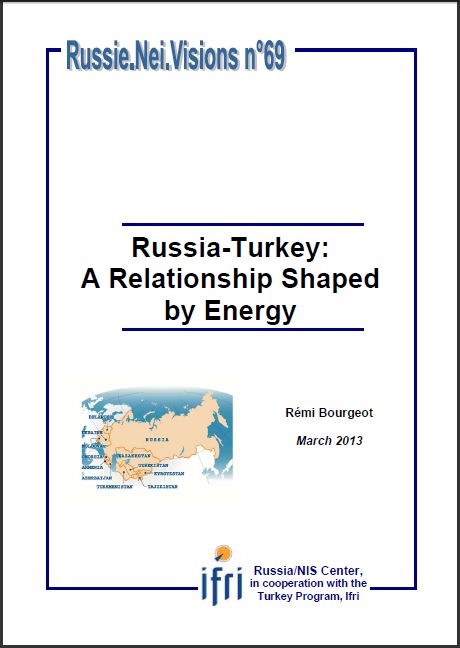Russia-Turkey: A Relationship Shaped by Energy

Deepening energy ties between Turkey and Russia prompt questions as to the balance of power between the two countries, with the former relying heavily on the latter for its energy needs.
In light of Europe's diversification efforts and of tensions with Ukraine, Russia is building the South Stream pipeline under the Black Sea (through Turkish territorial waters). At the same time, Turkey is strengthening its position in South Stream's rival projects, which aim to supply the EU with gas from the Caspian Sea. This means there is a difficult balance here: while Russia attempts to protect its European revenues, Turkey is trying to enhance its status as an energy hub between Europe, the Caucasus and the Middle East. In addition, the Turkish government and, increasingly, private Turkish operators are developing an energy partnership with Russia in a growing number of fields, including nuclear power. The economic significance of these common projects explains the desire of the two countries to play down their contrasting political interests in the Middle East.
This paper is the product of cooperation between the Russia/NIS Center and the Contemporary Turkey Research programme, Ifri.
Download the full analysis
This page contains only a summary of our work. If you would like to have access to all the information from our research on the subject, you can download the full version in PDF format.
Russia-Turkey: A Relationship Shaped by Energy
Related centers and programs
Discover our other research centers and programsFind out more
Discover all our analysesThe Caspian Sea as an Emerging Energy Hub : Potentials and Limitations
This report analyzes the prospects of the Caspian Sea region — and its key actors except for Russia and Iran — becoming an important energy hub serving the needs of the European Union (EU).
The European Union's Strategic Test in Georgia
The political crisis brewing in Georgia is of an existential nature for the country. What is at stake is Georgia's future as a democratic and sovereign European nation (EU).
Commanders of Putin's Long War: Purged, Reshuffled and Disgruntled
The trend of reshuffling the Russian top military command in the course of a fast-evolving and far from successful war has progressed unevenly both across the Armed Forces’ structures and in time. The rationale for and timing of the abrupt cadre decisions made by Commander-in-Chief Putin often defy logical explanation, and the rare official clarifications are no more informative than the usual information blackout.
Russian Military Manpower After Two and a Half Years of War in Ukraine
In addition to a military victory in Ukraine, the Russian leadership is planning to build up sizable troop formations for a possible conflict with NATO in the Baltic region and the Kola Peninsula. In particular, current plans aim for the military manpower to grow by about 350,000, reaching a total of 1.5 million soldiers and commanders. In the context of the current conflict in Ukraine, this cannot be accomplished without a new wave of mass mobilization.









